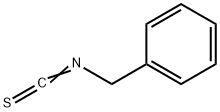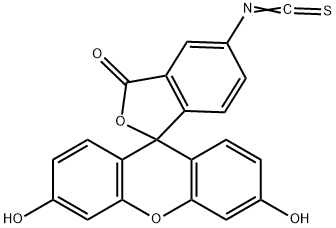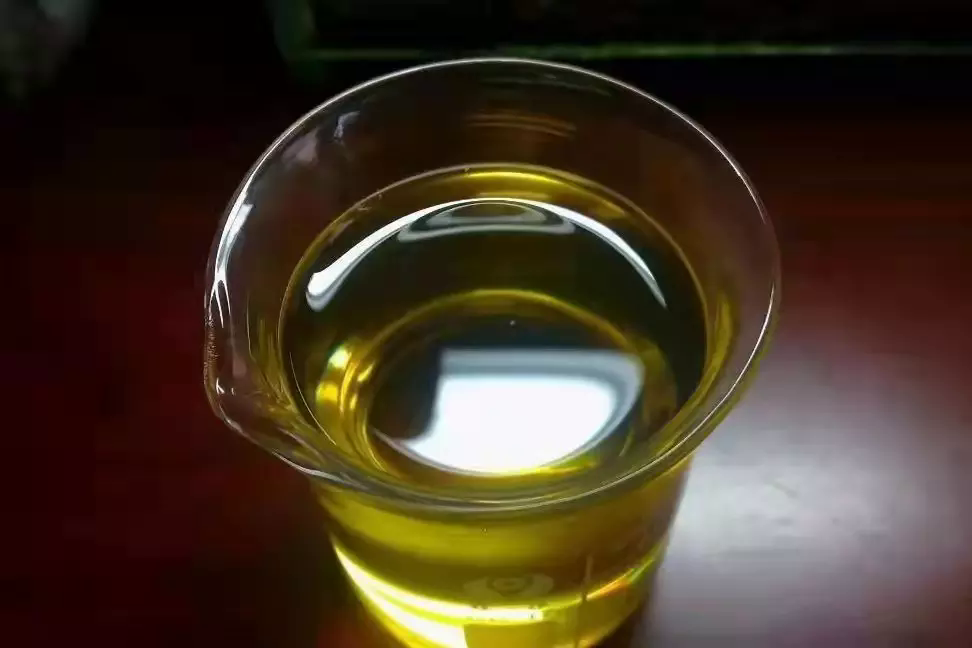BENZYL ISOTHIOCYANATE
Synonym(s):Benzyl mustard oil;BITC;Isothiocyanotaomethylbenzene
- CAS NO.:622-78-6
- Empirical Formula: C8H7NS
- Molecular Weight: 149.21
- MDL number: MFCD00004819
- EINECS: 210-753-9
- SAFETY DATA SHEET (SDS)
- Update Date: 2025-12-26 16:58:18

What is BENZYL ISOTHIOCYANATE?
Description
Benzyl isothiocyanate is a natural product found in the Eastern Hemisphere mustard plant?Alliaria petiolata, seeds of the pilu tree (Salvadora persica), and papaya (Carica papaya) seeds. It is a colorless to pale yellow liquid with a boiling point of 242–243 oC and a characteristic watercress-like odor.
In 2006, there was a?report?that isothiocyanates, including benzyl isothiocyanate, protected against pancreatic carcinogenesis in vitro. Based on this study and others, Bo Yu and colleagues at the Chinese Academy of Sciences (including its university) sought to find biosynthetic methods for producing isothiocyanates.
As reported in?ACS Synthetic Biology, the researchers metabolically engineered?Escherichia coli?to synthesize benzyl isothiocyanate. By using a combination of gene mining, pathway engineering, and protein modification, they were able to adapt two enzymes that allowed?E. coli?to make the product.
The authors state that they “provided a proof of concept for the production of benzyl isothiocyanate by microbially produced enzymes and, importantly, laid the groundwork for further metabolic engineering of microbial cells for the production of isothiocyanates.”
Chemical properties
clear yellow liquid
Chemical properties
Pale yellowish liquid; strong, penetrating aroma.
Occurrence
Reported found in common cress, Lepidium sativum, nasturtium, and Tropaeolum majus.
The Uses of BENZYL ISOTHIOCYANATE
A novel medical application of isothiocyanate ester in treating various leukemia, with low toxicity, which includes benzyl isothiocyanate, phenylethyl isothiocyanate, allyl isothiocyanate, sulforaphane, and erucin. Benzyl isothiocyanate (BITC) inhibits the growth of human pancreatic cancer cells by inducing apoptosis.
The Uses of BENZYL ISOTHIOCYANATE
antineoplastic, antibacterial, antifungal
The Uses of BENZYL ISOTHIOCYANATE
Benzyl isothiocyanate has been used in the preparation of S-(N-benzylthiocarbamoyl)-L-glutathione and S-(N-benzylthiocarbamoyl)-L-cysteine.
What are the applications of Application
Benzyl isothiocyanate is an inhibitor of methylazoxymethanol acetate
Definition
ChEBI: Benzyl isothiocyanate is an isothiocyanate and a member of benzenes. It has a role as an antibacterial drug.
Preparation
Benzyl isothiocyanate is synthesized by the following two methods: I) from Benzylamine via Thiuramdisulfide via Sodiumsalt with Iodine to Benzyl-isothiocyanate. 2) from Benzylamine and Thiocarbonyl chloride.
Aroma threshold values
Medium strength odor, watercress type; recommend smelling in a 1.0% solution or less.
Synthesis Reference(s)
Tetrahedron Letters, 33, p. 7021, 1992 DOI: 10.1016/S0040-4039(00)60922-X
General Description
Benzyl isothiocyanate is a naturally-occurring constituent of cruciferous vegetables. It has antibacterial properties and its metabolism in man has been investigated. It inhibits chemically induced cancer in animal models.
Hazard
Very irritant to tissues.
Biochem/physiol Actions
Odor at 1.0%: Vegetative cabbage and radishlike, green with a musty sulfurous earthiness reminiscent of mustard greens.Taste at 0.5ppm: Green vegetative cabbage, kimchi, radish and wasabi-like with green leafy nuances and imparting a strong trigeminal tongue numbing and raspy sensation.
Safety Profile
Poison by intraperitoneal andsubcutaneous routes. Intensely irritating. Mutation datareported. Moderate fire hazard via heat, flame, andoxidizers. To fight fire, use water, spray, foam, drychemical. When heated to decomposition it emits verytoxic NOx
Solubility in organics
Soluble in alcohol and oils.
Properties of BENZYL ISOTHIOCYANATE
| Melting point: | 41 °C |
| Boiling point: | 242-243 °C(lit.) |
| Density | 1.125 g/mL at 25 °C(lit.) |
| refractive index | n |
| FEMA | 4428 | BENZYL ISOTHIOCYANATE |
| Flash point: | >235 °F |
| storage temp. | 2-8°C |
| solubility | 0.1g/l |
| form | Liquid |
| color | Clear yellow |
| Specific Gravity | 1.125 |
| Odor | at 0.10 % in dipropylene glycol. mild watercress dusty medicinal horseradish oily |
| Water Solubility | Hydrolyzes in water. |
| Sensitive | Moisture Sensitive |
| JECFA Number | 1562 |
| BRN | 386135 |
| CAS DataBase Reference | 622-78-6(CAS DataBase Reference) |
| EPA Substance Registry System | Benzene, (isothiocyanatomethyl)- (622-78-6) |
Safety information for BENZYL ISOTHIOCYANATE
| Signal word | Danger |
| Pictogram(s) |
 Exclamation Mark Irritant GHS07  Health Hazard GHS08 |
| GHS Hazard Statements |
H302:Acute toxicity,oral H315:Skin corrosion/irritation H317:Sensitisation, Skin H319:Serious eye damage/eye irritation H334:Sensitisation, respiratory H335:Specific target organ toxicity, single exposure;Respiratory tract irritation |
| Precautionary Statement Codes |
P261:Avoid breathing dust/fume/gas/mist/vapours/spray. P264:Wash hands thoroughly after handling. P264:Wash skin thouroughly after handling. P280:Wear protective gloves/protective clothing/eye protection/face protection. P301+P312:IF SWALLOWED: call a POISON CENTER or doctor/physician IF you feel unwell. P302+P352:IF ON SKIN: wash with plenty of soap and water. P305+P351+P338:IF IN EYES: Rinse cautiously with water for several minutes. Remove contact lenses, if present and easy to do. Continuerinsing. |
Computed Descriptors for BENZYL ISOTHIOCYANATE
| InChIKey | MDKCFLQDBWCQCV-UHFFFAOYSA-N |
New Products
4,4-Difluoropiperidine hydrochloride tert-butyl 9-methoxy-3-azaspiro[5.5]undecane-3-carboxylate Indole Methyl Resin N-Isopropylurea N,N-Dicyclohexylcarbodiimide(DCC) MELDRUMS ACID 5-METHYLISOXAZOLE-4-CARBOXYLIC ACID Magnessium Bis glycinate Zinc ascorbate 1-bromo-2-butyne 2-acetamidophenol 9(10H)-anthracenone Erythrosin B, 4-Piperidinopiperidine 2-((4-morpholinophenylamino) (methylthio) methylene) malononitrile 2,4-dihydroxybenzaldehyde 3-(4-morpholinophenylamino)-5-amino-1H-pyrazole-4-carbonitrile Methyl 2-methylquinoline-6-carboxylate 2,6-dichloro-4-nitropyridine 4-Bromo-2-chlorobenzonitrile 2-(benzylamino)acetic acid hydrochloride 4-(tert-Butoxycarbonylamino)but- 2-ynoic acid 3,4-dihydro-2H-benzo[b][1,4]dioxepine 1-Phenyl-1-cycloprppanecarboxylicacidRelated products of tetrahydrofuran








You may like
-
 622-78-6 BENZYL ISOTHIOCYANATE 98%View Details
622-78-6 BENZYL ISOTHIOCYANATE 98%View Details
622-78-6 -
 622-78-6 99%View Details
622-78-6 99%View Details
622-78-6 -
 Benzyl isothiocyanate 98% CAS 622-78-6View Details
Benzyl isothiocyanate 98% CAS 622-78-6View Details
622-78-6 -
 Benzyl Isothiocyanate CAS 622-78-6View Details
Benzyl Isothiocyanate CAS 622-78-6View Details
622-78-6 -
 Benzyl isothiocyanate CAS 622-78-6View Details
Benzyl isothiocyanate CAS 622-78-6View Details
622-78-6 -
 20677-73-0 (2,2-diethoxyethyl)methylamine 98%View Details
20677-73-0 (2,2-diethoxyethyl)methylamine 98%View Details
20677-73-0 -
 3-(4-(hydroxyamino)-1-oxoisoindolin-2-yl)piperidine-2,6-dione 98%View Details
3-(4-(hydroxyamino)-1-oxoisoindolin-2-yl)piperidine-2,6-dione 98%View Details -
 57381-49-4 2-bromo-4-chlorobenzonitrile 98%View Details
57381-49-4 2-bromo-4-chlorobenzonitrile 98%View Details
57381-49-4
